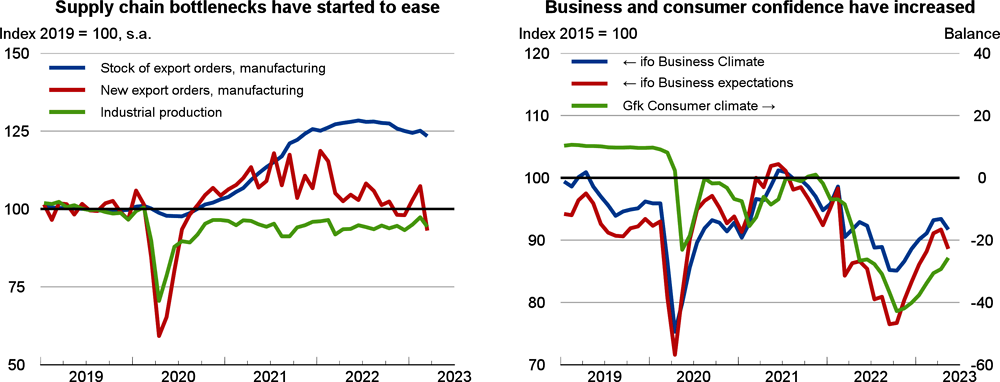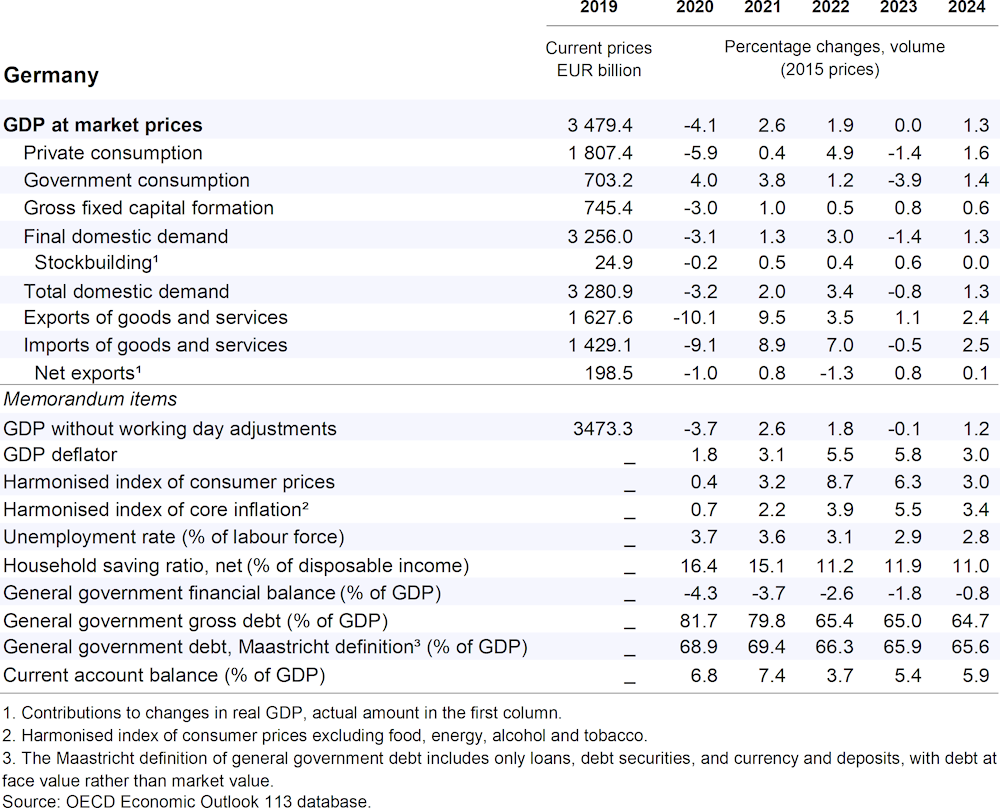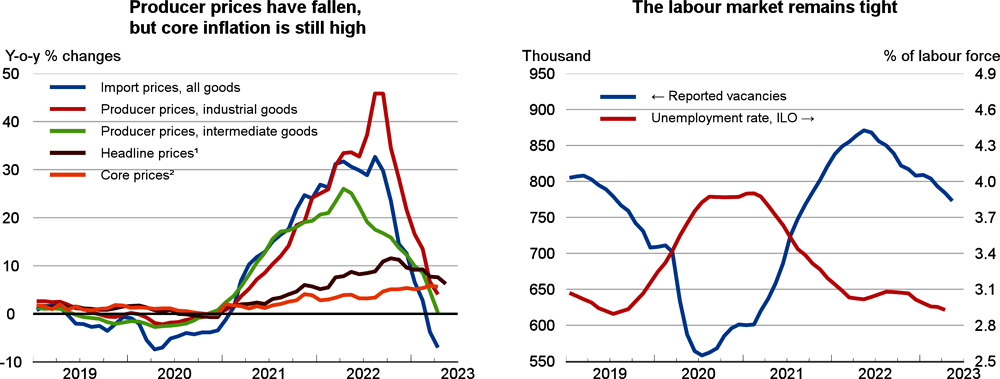The economy is projected stagnate in 2023 and grow by 1.3% in 2024. High inflation is reducing real incomes and savings, damping private consumption. Export growth will recover through 2023 due to easing supply chain bottlenecks and a record-high order backlog. Investor and consumer confidence have improved due to strong energy price support, swift substitution of energy imports from Russia and declining energy prices. Investment will pick up, despite rising interest rates, mainly due to high corporate savings and investment needs related to the relocation of supply chains and renewable energy expansion, rising public investment and strong fiscal incentives for green investments.
The fiscal deficit will be reduced in 2023 and 2024. To contain inflationary pressures, it is essential to avoid an expansionary fiscal stance. Improving infrastructure planning, approval processes and capacity, particularly at the municipal level, would accelerate the energy transition and digitalisation. Skilled labour shortages should be addressed by raising the labour supply of women, older and low-skilled workers, improving training and adult learning, and facilitating the recognition of the qualifications of migrants and refugees.



